Fitbit Ace 2 vs Garmin Vivofit Jr 3: which is best kids fitness tracker?
We pit kids’ trackers made by two of the biggest names in fitness tech in a head-to-head, to find out which is the best to get children moving

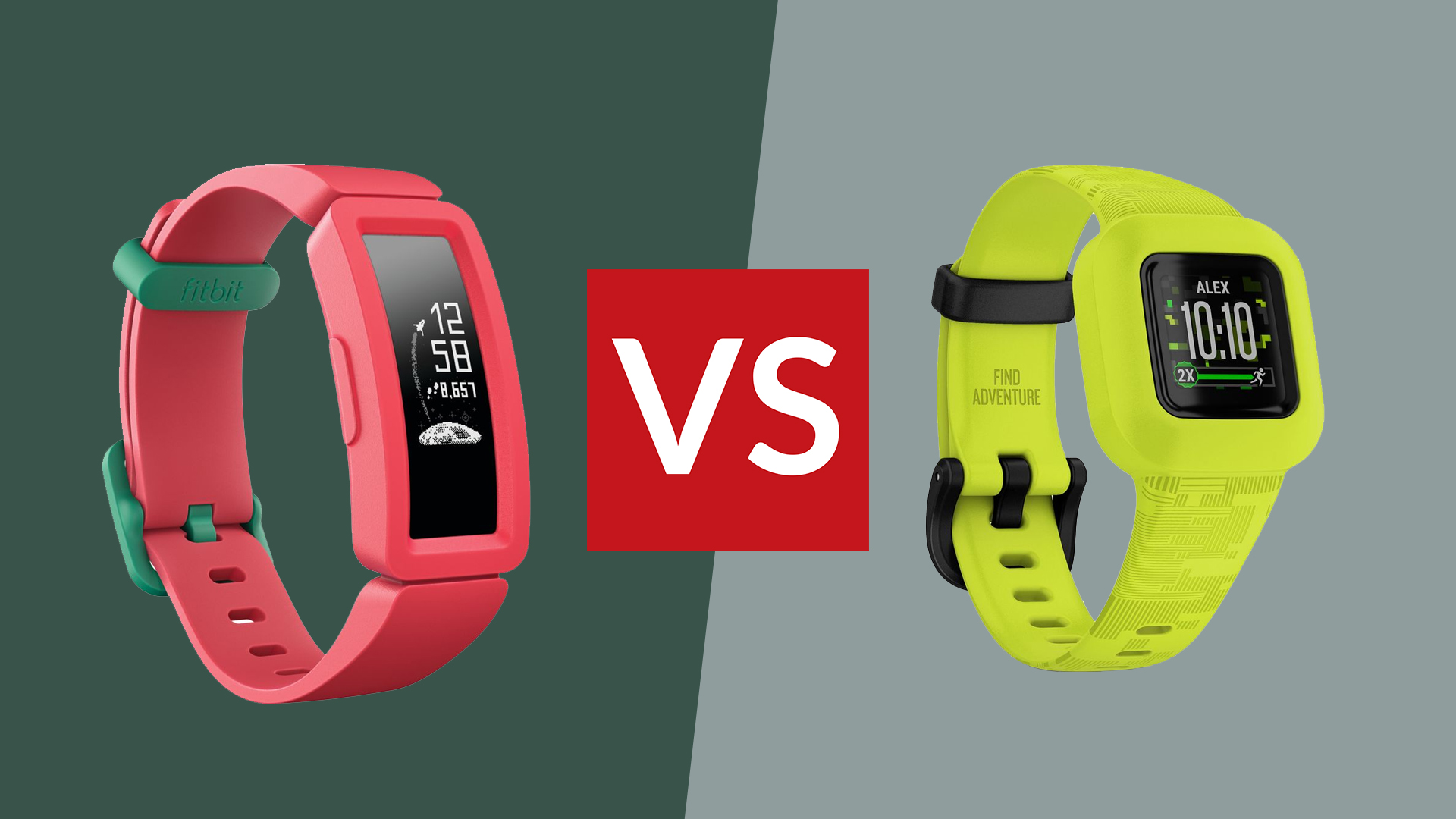
There are tonnes of fitness gadgets out there for grownups and kids, but when it comes to trusted brands, Garmin and Fitbit tend to streak ahead of the competition and are two of the best kids' smartwatches available.
So, if you’re looking to invest in a fitness tracker to motivate your aspiring athlete (or just want to motivate your kid to leave the sofa more often,) then you have probably considered one of Garmin or Fitbit’s options.
Both Fitbit’s Ace 2 and Garmin’s Vivofit Jr 3 are aimed at helping children to achieve the WHO recommended daily hour of daily exercise. They’re designed to track and record activity levels effectively in a child-friendly and accessible way, rewarding the child for hitting daily targets with fun activities and games.
Neither device needs charging every day, but there are big differences in battery life and the screens, with one boasting a colour display that’s operated with a physical button, and the other a greyscale touchscreen.
Sadly, and somewhat ironically, it’s hard to take fitness trackers for a test run, so we’ve tested both and are here to give you a rundown of the features, and help you decide which might suit your family best.
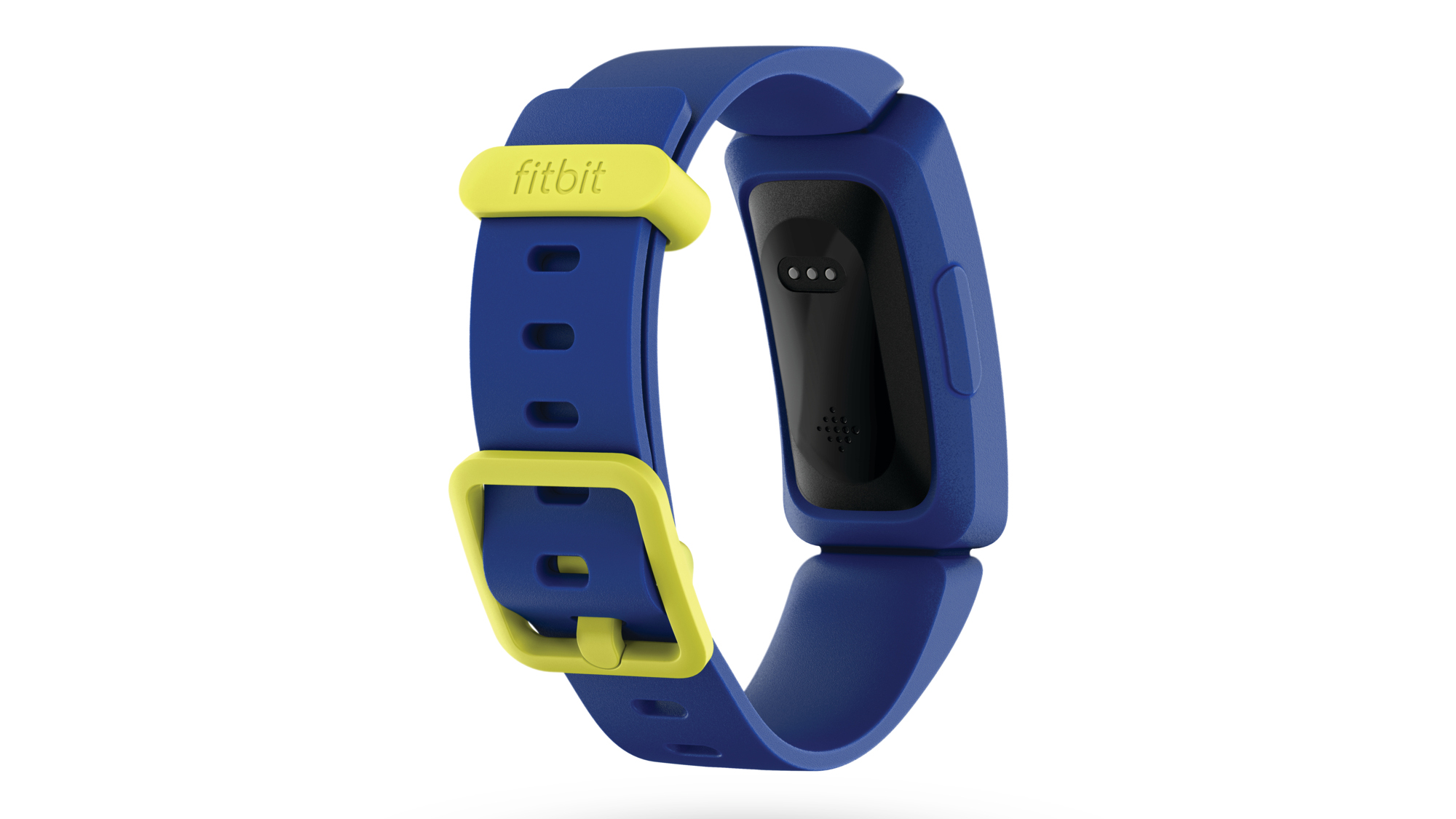
Fitbit Ace 2 vs Garmin Vivofit Jr 3: Design
When it comes to design, the Fitbit wins gold. The slim, adjustable silicone band is comfortable for younger children, while its stylish good looks and resemblance to an adult fitness tracker will appeal to the fashion-conscious teenager. The tracker has a greyscale screen, which is more functional than fun, but the touchscreen capability makes it super easy to use, even for very young wearers. The magnetic charger is also a nice touch, making this one slick operator.
The Garmin Vivofit Jr 3 resembles a traditional watch with an adjustable buckle to fasten the strap. Its bright and chunky design will appeal to children who will also appreciate its colour screen, which can be easily personalised and displays stats, games and (perhaps most importantly,) characters. The choice of characters depends on which watch you choose, with Disney Princess and Star Wars options available, for example. The only big downside is that this watch lacks a touchscreen.
Get all the latest news, reviews, deals and buying guides on gorgeous tech, home and active products from the T3 experts
WINNER: Fitbit Ace 2. The Fitbit is the clear winner with its sleek and slim design that’s brilliantly suited to small wrists, but kids who love Marvel or Disney will adore the more traditional Garmin tracker.
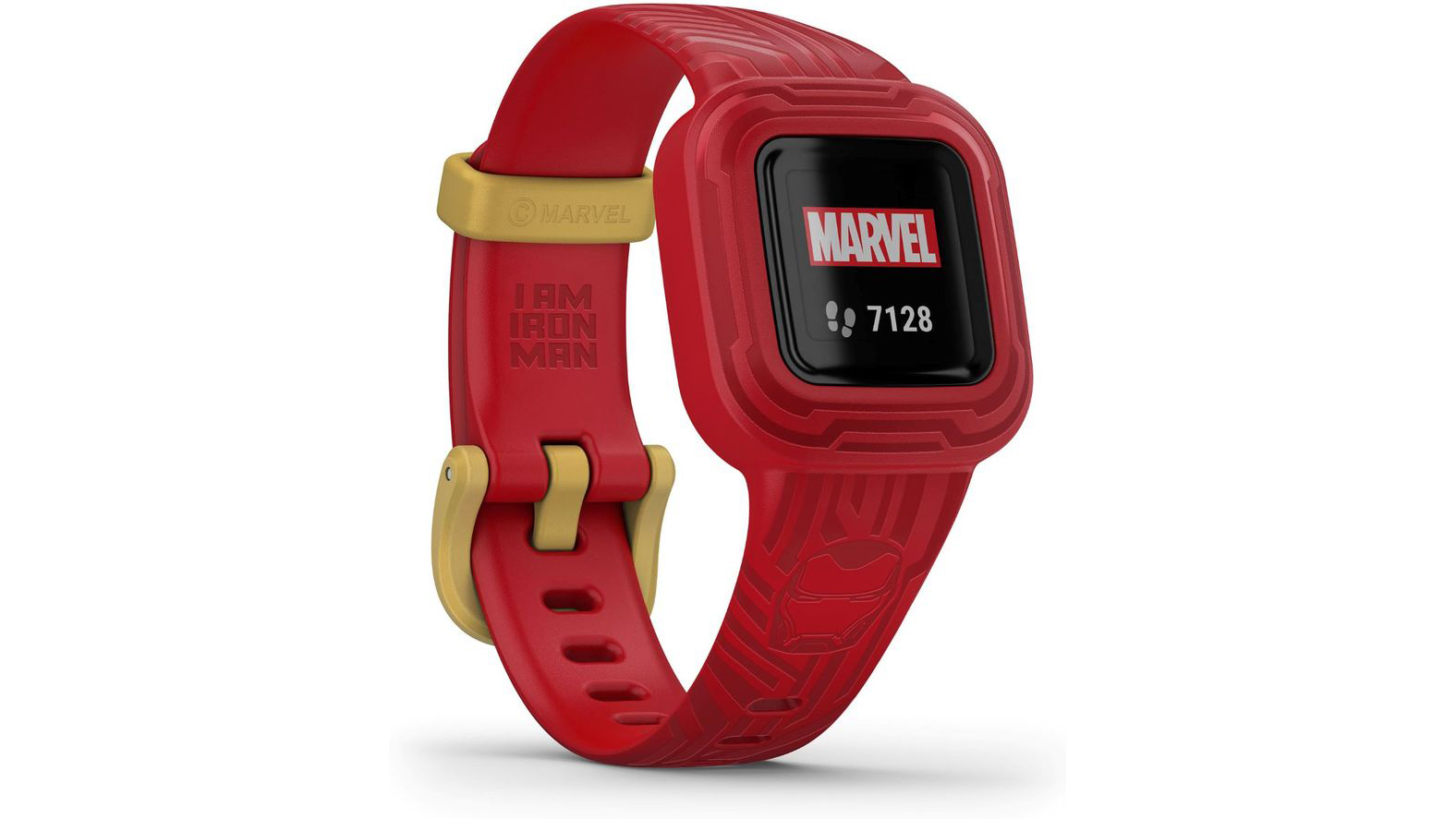
Fitbit Ace 2 vs Garmin Vivofit Jr 3: Features and performance
The Fitbit Ace 2 does all you’d expect of a child’s fitness tracker and more. It counts steps, ‘active’ minutes and even sleep time. It comes preset with a one-hour active goal with a useful vibration alert ‘nudging’ the child into moving after a period of inactivity. An easy-to-use timer and stopwatch are useful and fun additions and kids can view their stats themselves in the accompanying app’s ‘Kid View’.
Motivation is key to Fitbit Ace 2’s success, so hitting a target is rewarded with digital badges and celebrations. Stats can be easily viewed by simply scrolling through the data on the watch screen, while rewards are displayed in the app. The screen also displays appealing clock face options (some of which change when kids get active to encourage them to notch up those footsteps) that can be easily customised via the parent’s app.
Parents retain control over the device via the app, enabling them to check on stats, set bedtimes and alarms and even to allow competition with friends.
The Garmin Vivofit 3 Jr also does a very good job of counting steps and recording active time, but it’s the device’s aim to gamify exercise that makes it so attractive to children. After logging 60 minutes of activity, they can access a range of appealing adventure games and activities within the parents app.
For competitive children, the Garmin tracker is great as it rewards activity with gems and coins, which can be used to unlock superhero or Disney content in the accompanying app. Wearers also challenge nearby friends in timed activities.
Garmin’s partner app lets parents view their kid’s activity data in the app (just like Fitbit), as well as assign tasks and chores, which are rewarded with virtual coins.
Both watches do a great job at gamifying exercise and are ‘swim friendly’. The main difference is the reward system, as progress is mainly rewarded on the Fitbit’s watch screen with changing watch faces (as well as with badges in the app) but the Garmin uses more delayed gratification. This means kids have to wait to get their hands on a parent’s phone before unlocking bonus content.
WINNER: It’s a draw! It was too tricky to choose one tracker over the other, as it’s largely a matter of personal choice for which incentives will work best for your child. While the Garmin probably offers more incentives on balance, kids have to wait to access content, while the Fitbit’s touchscreen and changing watch faces are a big plus.
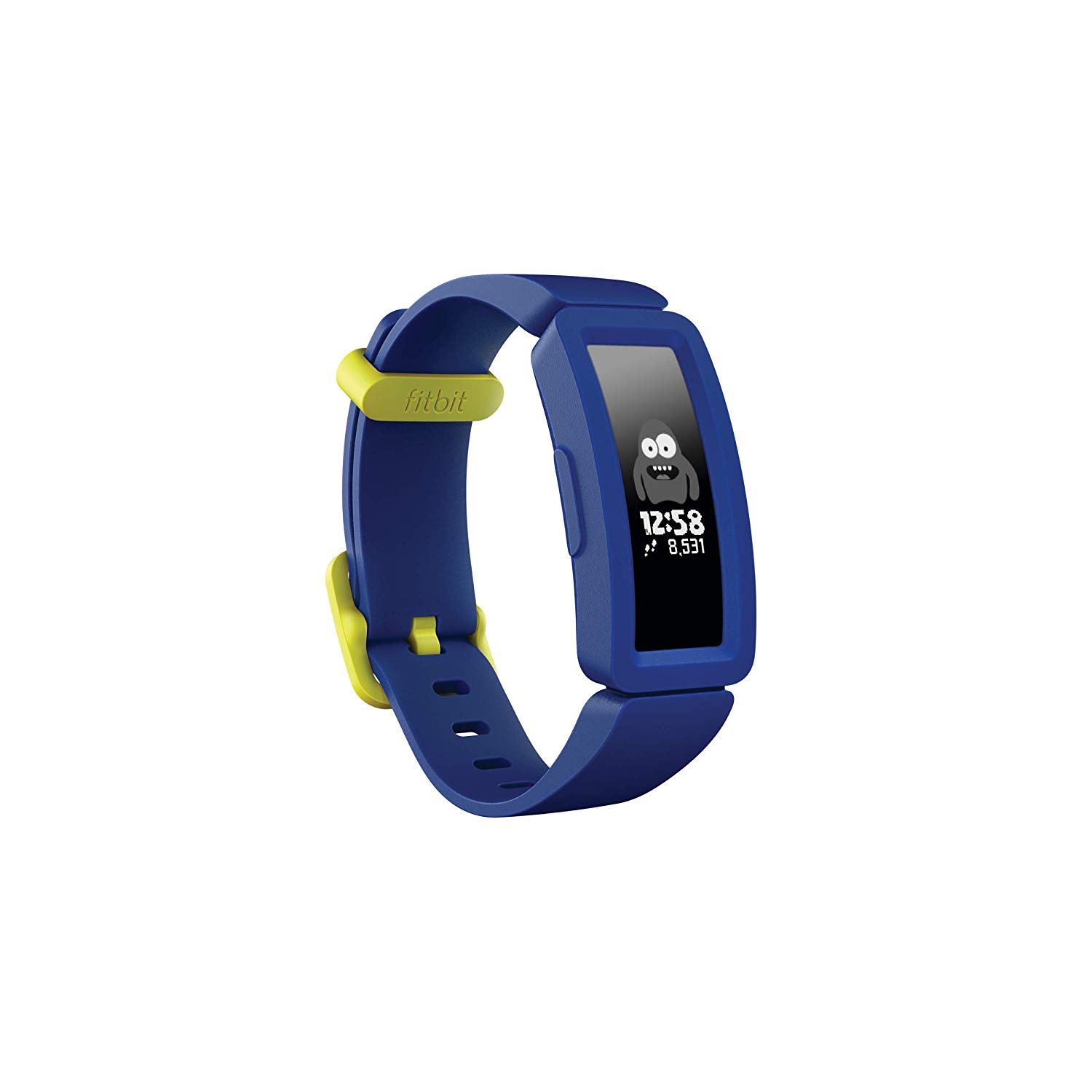
Fitbit Ace 2 vs Garmin Vivofit Jr 3: Battery
When it comes to battery life, these watches are very different beasts. The Fitbit Ace 2 lasts five days on a full charge, but ours lasts longer, despite our mini tester getting very swipe-happy.
While you have to remember to charge the Fitbit Ace 2 at least once a week, it’s super easy thanks to the slick magnetic charger that sits on the back of the watch and you get nice text warnings on the watch accompanies with vibration alerts, leaving you with enough time to charge the watch before it gives up the ghost.
But, if you hate remembering to charge gadgets, the Garmin Vivofit Jr 3 is the clear winner, because it lasts approximately a year.
WINNER: It has to be the Garmin. It’s rare to find a smart device that doesn’t require frequent charging, but this one does just that.
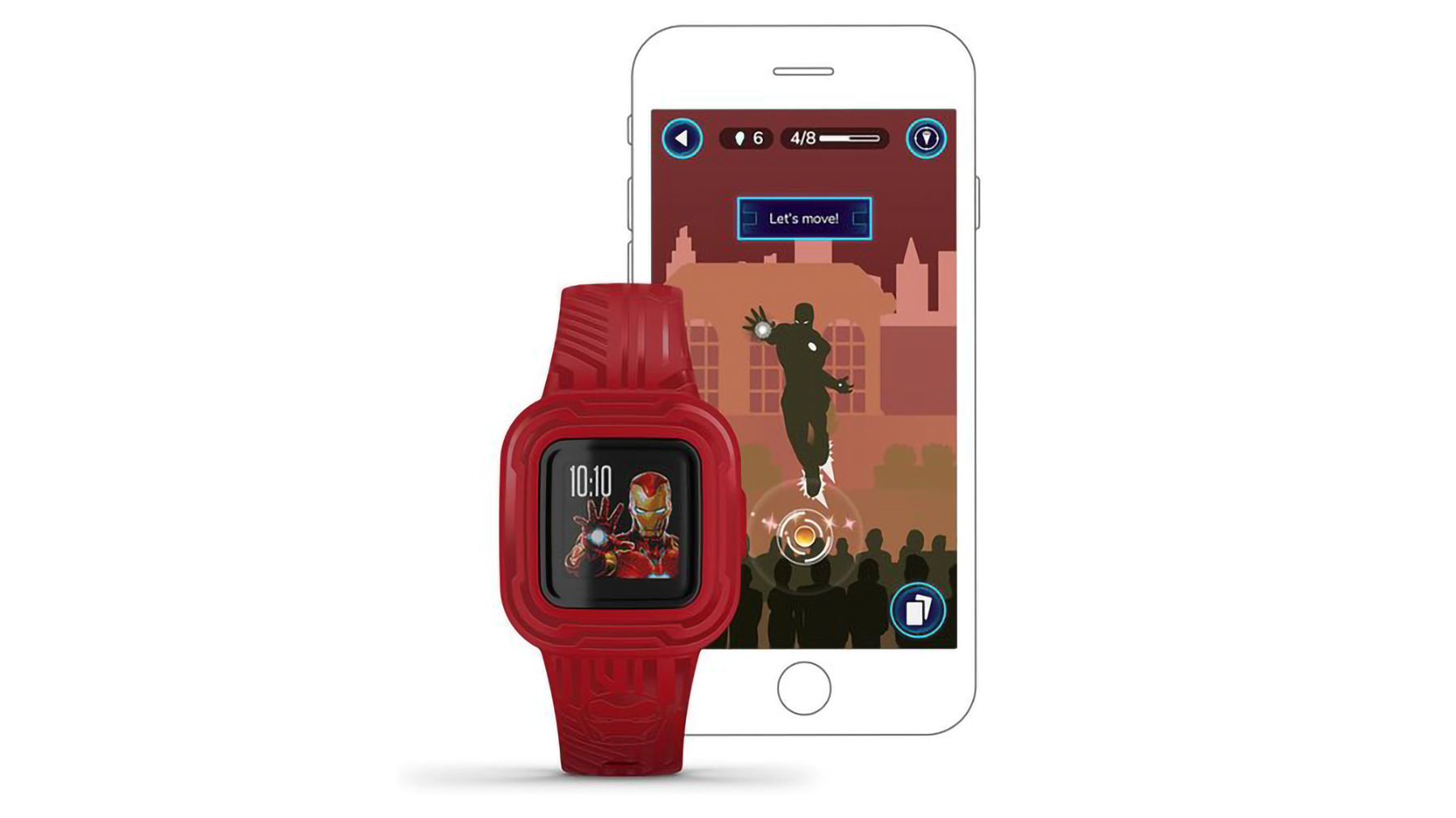
Fitbit Ace 2 vs Garmin Vivofit Jr 3: Price
Both smartwatches sit in the middle of the children’s tracker market. The Fitbit Ace 2 retails for around £49 and comes in a choice of two colour combinations, while the Garmin Vivofit Jr 3, is more expensive at around £75. However, there are more designs to choose from, with Disney Princesses, Marvel and Star Wars options. Unlike their fancier and more expensive competitors, neither fitness tracker requires a phone contract, which is an important cost consideration. Both devices also allow you to link compatible devices within family accounts so you can view your child’s progress easily.
WINNER: Fitbit Ace 2: For value for money, it’s hard to beat Fitbit’s tracker.
It’s considerably cheaper than the Garmin Vivofit Jr 3 but does everything a child’s fitness tracker should do, very well indeed.
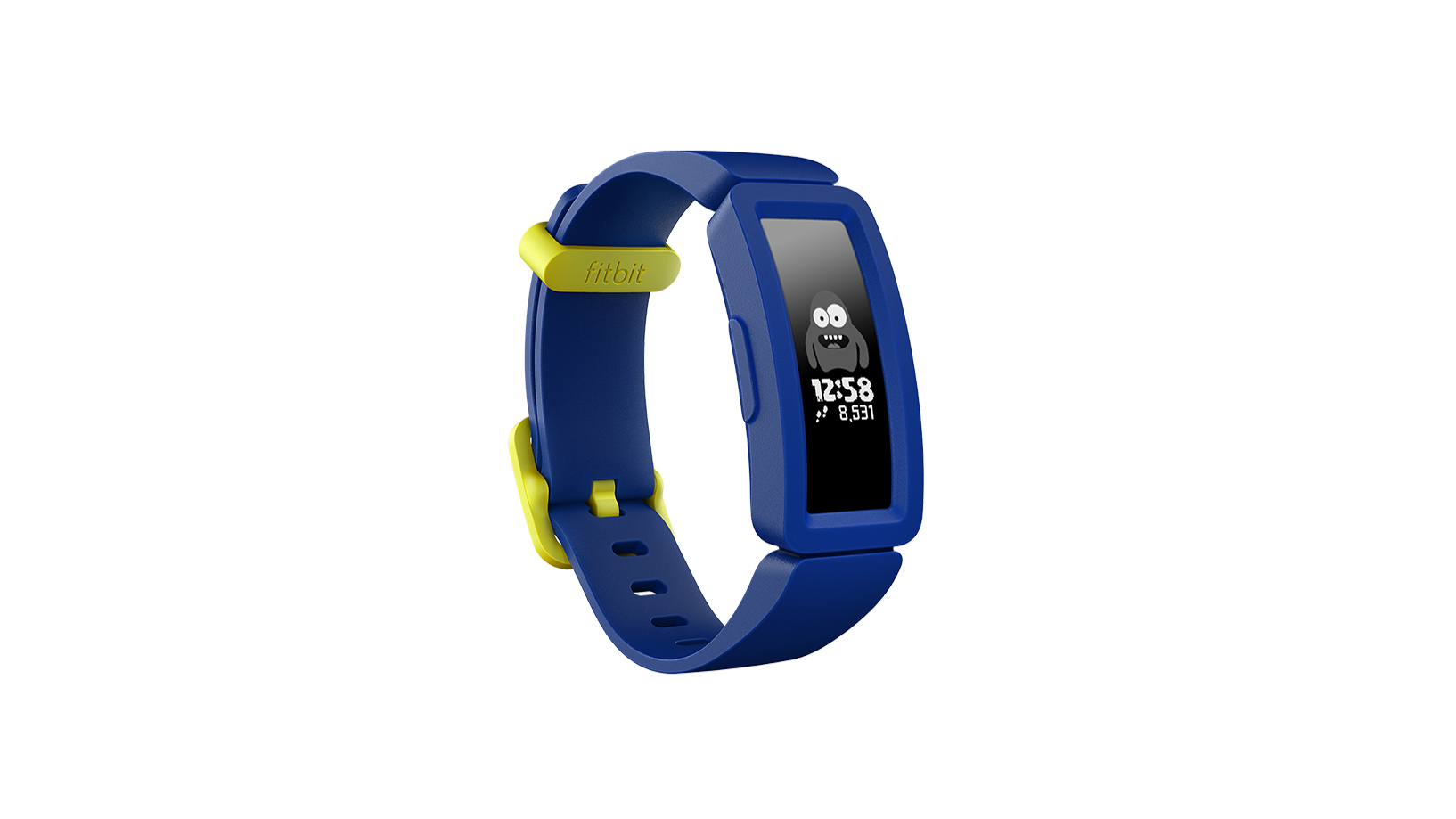
Fitbit Ace 2 vs Garmin Vivofit Jr 3: Verdict
The Fitbit Ace 2 pips Garmin’s Vivofit Jr 3 to the post, but it was a very close race. The Fitbit is more stylish (in our humble opinion) and the touch screen is a big bonus, but the Garmin’s colour display, movie content and amazing battery life, mean it’s a top contender.
Both watches are great buys (and it’s a very tough and personal choice), but the Fitbit has won gold, because it offers a rare thing: longevity.
The sleek design and lack of character tie-ins, mean it will last kids for a long time, even into teenage years, when they can swap cutesy watch faces with moving animals for some stylish digits.
Liked this?
A journalist with 10 years experience, Sarah specialises in Science and Technology, writing for the BBC, national papers and consumer magazines, including T3, of course. Sarah has reviewed a range of products for T3, from children’s electric toothbrushes to water bottles and photo printing services. There's nothing she can't become an expert in!
